
Emergency Dentist — Jacksonville, FL
We’re Here When You Need Us

No one wakes up expecting to deal with a painful toothache or dental injury, but 1 in 6 Americans will face a dental emergency this year. Do you have a plan in place if this includes you? If not, Khoi Dental Group - Formerly Carlson Dental Group is happy to give you one: call us! If you have an urgent dental concern, we’ll do everything we can to see you as soon as possible and take care of the problem, so you can get back to your life without delay after emergency dentistry in Jacksonville, FL.
Why Choose Khoi Dental Group - Formerly Carlson Dental Group for Emergency Dental Care?
- Same-Day Appointments Available
- Get Scheduled in the Evening and on Weekends
- Walk-Ins Welcome
What Makes Our Emergency Dentistry Better?

In addition to offering same-day appointments for immediate pain relief, our dental office also has intraoral cameras and digital X-rays that help us quickly and accurately identify a problem as well as figure out the best way to fix it. This helps us minimize a patient’s pain and ensure no long-term damage is done to the teeth.
Learn More About Advanced Dental Technology
What to Do in a Dental Emergency

- Schedule a same-day appointment with us: When you get in touch with our office, you can not only schedule an emergency appointment for the same day that you call, but you can get advice from our team on what to do before you arrive. Along with same-day scheduling, we also encourage walk-ins and offer evening and weekend office hours, so you have no reason to put off your necessary dental care.
- Complete an emergency exam: When you do reach our dental office, one of our dentists will examine your mouth and capture digital X-rays if needed to determine the extent and severity of your dental issue.
- Review our findings with you: After getting you out of any immediate pain if present, our team will break down our findings with you and recommend a treatment plan that details expected treatments and estimated costs. This way, you can make an informed decision on your care before you get started.
- Get the care you need: We’ll work as quickly as we can to get your dental emergency under control, whether it’s through dental fillings, crowns, root canal therapy, extractions, or other treatment options.
The Most Common Dental Emergencies
After you contact our dental office, what you do in the meantime before you come to see us could make the difference between saving and losing a tooth. That’s why it’s important you take the right action. Below, you’ll find first-aid tips for some of the most common dental emergencies. And don’t worry, our team will walk you through them over the phone in case you need more assistance.
Understanding the Cost of Dental Emergencies
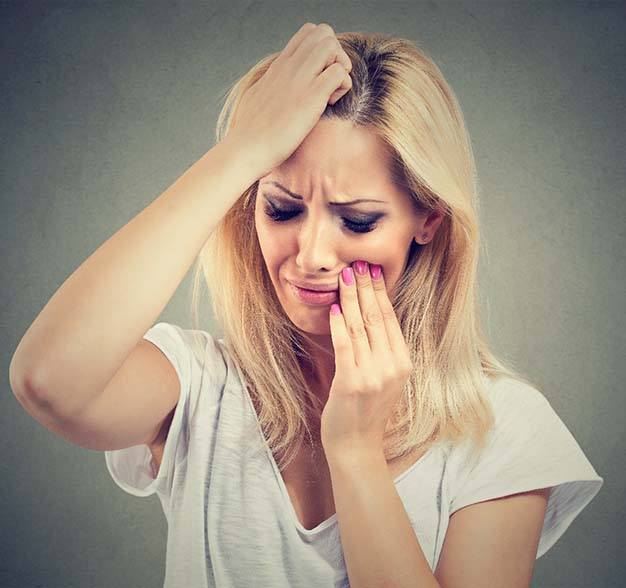
Just like with medical emergencies, the cost of urgent dental treatment will be based on the type and severity of a patient’s injury. What’s true for everyone, however, is that acting quickly is the best approach for both your smile and your wallet. Getting immediate attention will enable us to quickly stop any pain and use a more conservative treatment, which will lead to a lower cost. We’re also happy to accept dental insurance and offer flexible financing to make this care more affordable.
What Factors Influence the Cost of Emergency Dental Treatment?
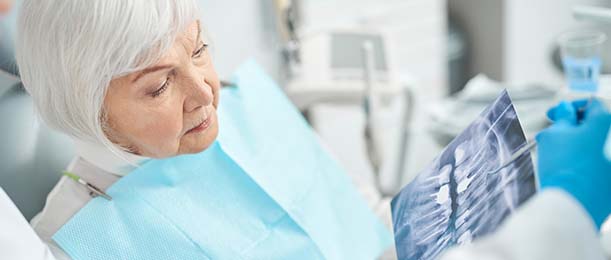
The only way that our team is able to calculate the cost of your emergency treatment is to first examine your mouth thoroughly. By taking X-rays and conducting a visual inspection of the damage, we can map out a treatment plan that can help remedy the issue. Some of the details that impact the cost of treatment include:
- Whether you require follow-up appointments for additional services, such as a dental crown placement after root canal therapy.
- If you have dental insurance that will cover the cost of the treatment.
- The severity of damage that your mouth has sustained. Typically, the more serious the problem, the more invasive and costly the required treatment is.
A Number of Easy Financing Options
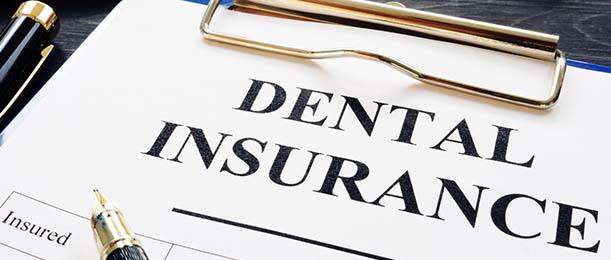
We take pride in being able to offer hassle-free emergency care. One of the ways that we’re able to do this is to provide a variety of financing options for patients in different situations. Here are some of the easy ways you can pay:
- In-network provider with many PPO plans
- Additional financing through CareCredit for patients who don’t have insurance
- In-house membership plan for sizeable discounts on treatments
If you have any questions or would like to learn more about how you can pay for your emergency treatment, don’t hesitate to contact our office!
The Importance of Never Putting Off An Emergency Visit
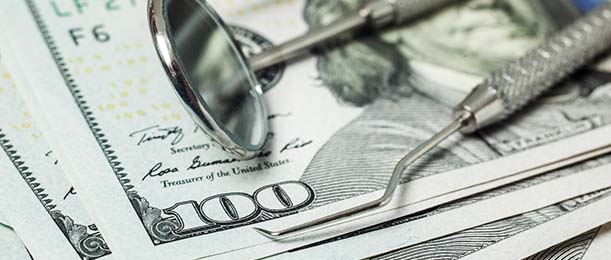
Some patients are tempted to wait and see if their symptoms disappear on their own in an effort to save money. Unfortunately, this often results in even more oral damage down the road, which requires more costly and invasive treatments. That’s why we recommend visiting us as soon as possible. Not only will this save you from experiencing severe pain, but it’ll also keep your monthly budget intact.
Keys to Preventing Dental Emergencies

If you want to know how to prevent dental emergencies in Jacksonville, it’s time to let our team of professionals offer some useful insight and advice. The tips below are designed to help you minimize your risk for serious injury and infection that often result in urgent trips to the emergency dentist’s office. Since no one wants to spend their weekend seeking immediate dental care, make sure you’re following these recommended steps to keep your smile decay- and damage-free.
Keep Your Regular Dental Appointments

Every six months, you should be visiting our dental office for a regular dental checkup and cleaning. Apart from walking away with clean teeth and fresh breath, these visits allow us to identify any early signs of decay, damage, or disease. We can then implement a treatment plan that restores and repairs your smile before it worsens and requires more advanced procedures. Not to mention, by continuing to see us for regular dental care, you can better manage your oral health year-round and avoid nagging toothaches, intense pain, and increased sensitivity.
Keep Brushing and Flossing
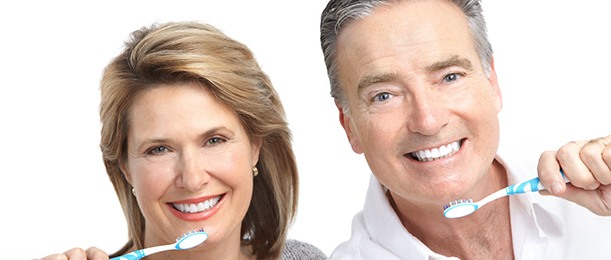
To avoid an unexpected trip to an emergency dental office in Jacksonville, make sure you’re keeping up with your oral hygiene routine at home. This includes brushing twice a day for two minutes, using fluoride toothpaste and a soft-bristled brush, flossing at least once before bed each day, and rinsing regularly with ADA-approved mouthwash. This eliminates bad bacteria and keeps your smile germ-free, so infections and inflammation are less likely to develop.
Be Mindful What You Eat

You are what you eat, which is why it’s important that you adopt healthy eating habits to reduce your risk for tooth decay, cavities, and gum disease. Not to mention the potential damage you can do to your teeth by eating hard, crunchy foods (i.e., chips, hard candy). Sugars and starches are fine to consume in moderation, but you must remember to rinse out your mouth with water or brush afterward. Otherwise, you’ll be faced with the potential for a serious toothache that may require more than a dental filling or crown. Instead, consume healthy greens and proteins, fruits and vegetables, and low-fat dairy to keep your teeth strong and gums free of inflammation.
Wear a Mouthguard to Protect Your Teeth
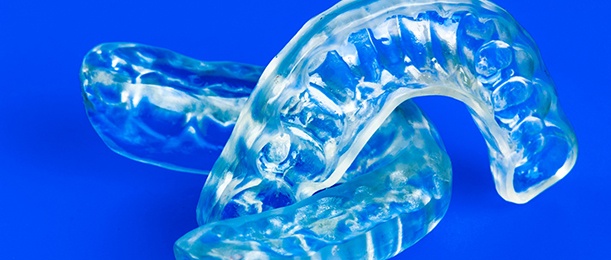
Your teeth are strong but not indestructible. A hard hit or accidental fall while running can lead to chips, cracks, breaks, and even lost teeth. Also, worn tooth enamel can be a reality if you suffer from bruxism (teeth grinding and clenching). Fortunately, with the help of a customized mouthguard, you can better protect your smile from serious injury. This soft cushion safeguards your pearly whites and soft oral tissues, so you don’t need to rush to see your emergency dentist for immediate help.
Use Tools to Open Packages, Not Your Teeth

Your teeth are not designed to tear open packages delivered in the mail. They’re made to tear through food. Unfortunately, when you choose the ease of just using your teeth instead of finding the right tool for the job, you risk damaging your smile. You can avoid this possibility by looking for scissors, pliers, or another appropriate tool. While it may take more time, your smile will thank you.
Dental Emergency FAQ’s

Are you still worried about what you should do if a dental emergency suddenly pops up? It’s understandable; dental emergencies can be confusing and anxiety-inducing. To make your situation less stressful, our team is happy to schedule an emergency appointment and answer your questions over the phone. In the meantime, it may help to read through the answers to some frequently asked questions about dental emergencies.
Will my toothache go away on its own?
Generally, toothaches do NOT go away on their own. One of the only exceptions would be if you’re experiencing pain around (not inside) the tooth, such as irritation of the gum tissue surrounding the tooth. Still, you’ll want to schedule an appointment with an emergency dentist just to make sure nothing is wrong.
There are several potential reasons for a toothache, many of which can spell disaster for your tooth if they’re not treated in a timely manner. By seeking treatment right away, you can reduce your risk of needing more invasive (and expensive) procedures down the road.
Should I visit the emergency room for dental emergencies?
Unfortunately, most emergency rooms are not equipped with the knowledge, skills, or technology required to effectively handle dental emergencies. In most cases, you’re better off seeing an emergency dentist first.
However, there are three primary exceptions where an ER visit is preferable:
- Fractured or dislocated jawbone
- Severe cuts or lacerations to the mouth or face
- Swelling that makes it difficult to breathe or swallow
- For virtually all other emergency situations, you should visit a dentist first.
Do chipped teeth heal?
Tooth enamel is the hardest material in the human body. However, it is almost entirely inorganic, meaning that it cannot heal on its own. Once a tooth has been chipped, even only slightly, the lost enamel will never regenerate.
In fact, a small chip in a tooth can worsen over time without proper treatment. While the enamel itself cannot be restored, there are many treatments, such as dental crowns, that can protect the tooth from further damage.
Are toothpicks safe to use?
If you have an object trapped between your teeth that you can’t remove with dental floss, then it can be tempting to dislodge it with a toothpick. Despite their name, most dentists do NOT recommend using toothpicks. They are generally unsafe, especially if they’re made of wood.
It can be all too easy to scratch your gum tissue or damage your enamel with a toothpick. Not only that, but wooden toothpicks can splinter and break off inside your mouth, causing even more harm. Toothpicks can even result in the opposite of their desired effect by pushing trapped objects further between the teeth or under the gums. You might even accidentally swallow a toothpick, which can be fatal.
How should I sleep with tooth pain?
It can be difficult to get quality sleep when you are dealing with a nagging toothache. Until you’re able to see an emergency dentist in the morning, keep your head elevated. This will keep blood from rushing to your head and intensifying your toothache. In addition, take over-the-counter pain medication as directed. Cold compresses can also help helpful when it comes to numbing discomfort.
What does throbbing tooth pain mean?
Throbbing tooth pain likely points to inflammation or an infection in the tooth. Cavities or cracks in the tooth allow air and bacteria to reach the sensitive inner are of the tooth. This results in irritation and a potential infection of the pulp nerves, therefore causing pain. This can also occur when decay is present. In other cases, throbbing tooth pain can be caused by clenching and grinding your teeth.
Should knocked-out teeth be placed in water?
Water can be used to rinse off a tooth, but the tooth should not be placed in water. This is because water can damage the root surface cells of the tooth, reducing your dentist’s chances of placing it back into the socket. Instead, do your best the place it back into the socket yourself. If you’re unable to, place it in a container of saliva, milk, or a saline solution. Try to see an emergency dentist within an hour for the best chance of having it restored.
Can I pop a dental abscess on my own?
You should never try to pop a dental abscess on your own. Always get in touch with your dentist as soon as you can, as an abscess is a dental infection and therefore an emergency. Popping the abscess will only expose your mouth to more bacteria and cause further irritation. Putting off treatment can allow the infection to spread to other areas of the body.
Preventive Dentistry Restorative Dentistry Dental Implants Cosmetic Dentistry Gum Disease Treatment TMJ/TMD Therapy Sedation Dentistry Sleep Apnea Treatment View Our Services